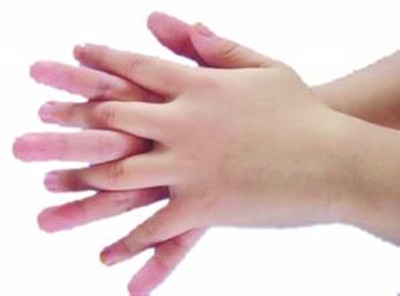Hold your hand out and try to keep it perfectly still.
伸出你的双手,试图保持完全静止。
After a moment, it will probably begin to shake.
过了一会儿可能就会出现颤抖。
Hold that same hand out just before you give a major presentation to your new boss, and you'll notice that those normal small tremors increase substantially.
同样的动作用在给你的新上司做报告前,你就会发现正常的小颤抖会大幅增加。
Why? The answer has to do with how nervous feelings influence a response cycle between two parts of your brain.
原因何在?答案在于紧张情绪对大脑两个部分之间反应周期的影响有关。
These parts are called the basal ganglia and the cortex.
这两个部分被称为基底神经节和大脑皮层。

In order for your brain to control the steadiness of your hand, the cortex and the basal ganglia exchange signals with each other.
为了让你的大脑稳定控制你的手,皮层和基底神经节互相交换信号。
First, the cortex sends a signal to the basal ganglia; the basal ganglia, in turn, responds returning a signal to the cortex.
首先,皮层给基底神经节传达信号;反过来基底神经节给大脑皮质传达响应信号。
These signals are the basis of motor control.
这些信号是动作控制的基础。
By exchanging signals, the cortex and the basal ganglia allow your hand muscles to hold their position.
通过交换信号,大脑皮层和基底神经节允许你的手部肌肉维持自身位置。
This cycle of signals repeats continuously the entire time your hand is extended.
这种信号循环在你展开手的整个时间中不断重复。












